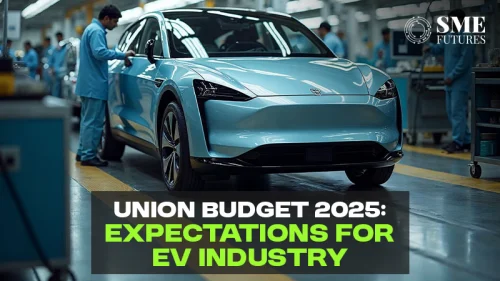Our survival is largely dependent on the environment, which is also influenced by the activities we do for a living. Business and ecology go hand in hand with industrialisation. To succeed in the domains of industrialisation and the environment, we must embrace green technologies that guide us toward sustainable development. Making environmentally friendly judgements and taking appropriate action to safeguard the environment are key components of environmental sustainability, which places a strong emphasis on maintaining the ecosystem’s capacity to sustain human existence. Since more people are becoming aware of the full influence that businesses and individuals may have on the environment and natural world, this is a crucial topic right now. It goes beyond just cutting back on the garbage you make and the resources you use.
MSME has introduced five trends to enhance working efficiently. The five trends are:
Supply chain optimisation By optimising the supply chain process, business owners can shift their attention to other ventures. Furthermore, integrating tech and digital into the supply chain reduces the laborious processes that are usually involved.
Adopting tech/AI In 2024, the use of technology and AI will completely revolutionise the game.
According to Shaurin Patel, the founder of Vexma, an additive manufacturing company, digitising spares and machine parts, particularly those that are imported, will have a significant impact on lowering import lead times, customs fees, carbon footprint, and inventory capital costs by enabling on-demand production.
Streamlining processes whether it’s hiring, financing, or accounting.
IPOs to continue One of the most challenges facing MSMEs is obtaining funding.
Although fintech is helping to expand lending, and non-banking finance firms (NBFCs) are growing, most MSMEs would rather go the initial public offering (IPO) route.
Sustainable practices the industry will also see a shift toward sustainable practices in 2024. Cost reduction is the primary motivator for roughly 90 per cent of MSMEs to pursue sustainability efforts, according to SIDBI (Small Industries Development Bank of India). 69 per cent of MSMEs believe that desire to support sustainability is the most essential factor, with regulations ranking second at 80 per cent.
Strategies for the Environment reached by MSME are Reduce, Reuse, Recycle: Cut down on waste creation by streamlining manufacturing procedures, selecting reusable containers, and putting paperless systems in place. Make investments in recycling programs for commodities such as metal, plastic, and paper.
Energy Efficiency: To cut down on energy usage, replace outdated lighting and equipment with more energy-efficient models, convert to renewable energy sources like solar panels, and implement smart building techniques.
Sustainable Sourcing: Assist suppliers who minimise their environmental effect and prioritize sustainable practices by forming partnerships with ethically sourced providers. To cut down on emissions from transportation, look for local vendors.
Water Conservation: Use water-saving techniques such as leak repair, low-flow faucet installation, and landscaping with rainwater harvesting. Green Transportation: Encourage staff members to take public transportation, bike, and carpool. If you operate a fleet or delivery business, think about using electric cars.
Social Responsibility:
Diverse and Inclusion: Establish a diverse and inclusive workplace that welcomes and values employees from all backgrounds. Foster an environment free from discrimination and harassment. Supply Chain Transparency: Be open and honest about your sourcing practices. Collaborate with suppliers who share your commitment to human rights and ethical labour. Community Engagement: Support local communities through volunteering, donations, or partnerships with NGOs. Provide fair wages and benefits. Invest in employee training and development.











